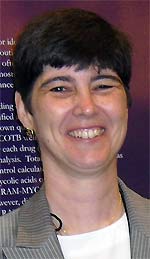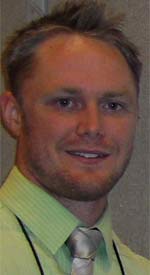 The last time ASM was held in New Orleans was the year before hurricane Katrina blew through and wrought such devastation. When I arrived for the 2011 conference in May of this year, I was curious to see if the city had changed much. As it turns out, the recovery has been two-pronged. The French Quarter and downtown sections of the city seem to have fully recovered, but there are vast areas of the city that are still boarded up and abandoned. According to several people we spoke to, only about 10% of the evacuees from these areas have returned to their homes.
The last time ASM was held in New Orleans was the year before hurricane Katrina blew through and wrought such devastation. When I arrived for the 2011 conference in May of this year, I was curious to see if the city had changed much. As it turns out, the recovery has been two-pronged. The French Quarter and downtown sections of the city seem to have fully recovered, but there are vast areas of the city that are still boarded up and abandoned. According to several people we spoke to, only about 10% of the evacuees from these areas have returned to their homes.
Of course, the main reason for my trip was to attend the conference. The Mycobacteriology scientific session held interesting talks about newly categorized Mycobacterium bolletii and M. massiliense as subspecies of M. abscessus. And for the first time since the advent of line-probe assays and genetic-marker-based susceptibility determinations for MTB, we heard the researchers admit that phenotypic susceptibility testing could never go away – something we clinical people have been saying from the beginning.
From a personal perspective, I feel it was a successful conference – I gave away all my handouts at my poster, I made a few discoveries in the vendor’s booths, collected a few brochures for possible new equipment, had a long look at the mysterious new MALDI-TOF instrument that’s heading our way for validation in the fall, and won an iPad in a raffle (how cool is that?).
Kim Dionne
 It was a great privilege to attend and present research at the 2011 ASM General Meeting in New Orleans. This meeting highlights the accomplishments and ongoing research of the field’s brightest minds. The ASM General Meeting offered many excellent seminars ranging from the history of B. anthracis as a biological weapon to the use of DNA-based techniques for the detection and identification of bacteria from culture negative biofilms. The meeting showcased the latest in technology, including sequencing and mass spectrometry. These techniques hope to streamline the identification of organisms in the microbiology laboratory, which can often take several days to weeks. A highlight of the conference involved showing support with many of my co-workers for our director, Dr. Karen Carroll, as she received an award for research in clinical microbiology. Overall, the conference was a great learning experience that showcased many different techniques and technologies that would be useful in our microbiology laboratory.
It was a great privilege to attend and present research at the 2011 ASM General Meeting in New Orleans. This meeting highlights the accomplishments and ongoing research of the field’s brightest minds. The ASM General Meeting offered many excellent seminars ranging from the history of B. anthracis as a biological weapon to the use of DNA-based techniques for the detection and identification of bacteria from culture negative biofilms. The meeting showcased the latest in technology, including sequencing and mass spectrometry. These techniques hope to streamline the identification of organisms in the microbiology laboratory, which can often take several days to weeks. A highlight of the conference involved showing support with many of my co-workers for our director, Dr. Karen Carroll, as she received an award for research in clinical microbiology. Overall, the conference was a great learning experience that showcased many different techniques and technologies that would be useful in our microbiology laboratory.
Brandon Ellis
Lead Clinical Laboratory Scientist – Microbiology
Johns Hopkins Hospital
I am extremely grateful for the opportunity to attend the 111th Annual American Society for Microbiology meeting held in New Orleans, Louisiana this past May. My experience attending this meeting was informative and enlightening. I attended a morning symposium called The Global Spread of Bacteria that Produce Beta-Lactamases, the lecturers were very engaging and thorough. The symposium covered hospital environment settings to implementing new CLSI guidelines. MALDI-TOF was a very big topic throughout the meeting which I found very interesting and exciting, especially with the identification of yeast and moulds. A highlight during the trip was being able to see Dr. Carroll win her BD award and all of Johns Hopkins Micro cheering for her. During my poster presentation, I met a colleague of a researcher who actually first began describing the Prototheca species that I was presenting from a case report. The entire trip was fun and informative.
Richard Lee
Lead Clinical Laboratory Scientist of Mycology
Johns Hopkins Hospital
New Orleans was hot and humid and seems to be still not completely recovered from the effects of Katrina. Bourbon street was looking seeder then I remembered. The big topic at the meeting was MALDI-TOF (mass-spec)where the reality of the method is begining to overtake the fantasy. I had good intrest in my poster, mainly because it was a topic (centroid database) that most had never heard of. I thought Dr. Carroll gave a great talk at her award symposium reflecting on her recent work with MRSA and C. difficle. I was glad to see her win this award as it is well desereved and real tribute to one of the hardest working and most dedicated Microbiologist I have ever worked with.
Mark Romagnoli